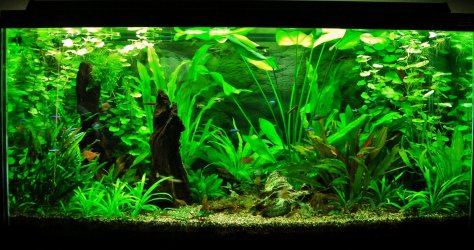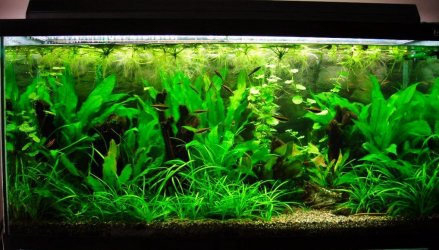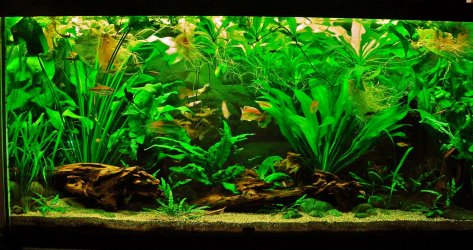If I may step in here...some of us are continually offering help to people who bluntly refuse it, and sometimes we may jump the gun rather than sit back and go slower. I remember a friend of mine, a marine biologist, a couple years back telling me she had left forums because she was tired of always having to justify herself when members literally told her she didn't know what she was talking about. I get that frequently on here; more than once I have nearly left this forum because I get fed up, but then I calm myself and try again. So, with that in mind...I'll do my best to comment on your responses to my earlier points.
I missed the small size previously, my fault, sorry about that. You have time to organize, but if a 6-foot tank is not likely, I would move to re-home the clowns now for their benefit. Fish are much more capable of acclimating to a new environment the younger they are. But you're fine for the present. Water changes don't need to be over the top; you have the space, and a weekly partial WC of 50-60% of the tank volume (at one go is better than multiple smaller changes) is "normal" by my thinking for every aquarium assuming it is not overstocked or stocked with problems.
And we never stop learning, or if we do, we should leave the hobby, as this is not fair to the fish we keep.

This is one of the major problems with this hobby...misinformation being seen/accepted as accurate when it is anything but correct. Anyone can post videos, or set up a website, and become "expert." I always look at the credentials. Seriously Fish is probably the best of its kind, because it is owned and administered by biologists and ichthyologists. But there are many, many sites not worth the viewing. The same can be said of fish stores; some are owned and staffed by hobbyists who research, but many are run by people just there for the salary.
When it comes to how a fish species will likely behave, there is a normal behaviour for the species. We should always expect the norm, and never experiment in the hopes it may work. It might sort of work, but more often than not it will not work because we are simply expecting the fish to be "different" to suit our needs. We should rather always aim to provide the species with what it needs, and go from there. Freshwater fish are living creatures that have evolved over thousands of years to function best in very specific environments; this is in their DNA, and you and I are not going to alter this. Read the two citations in my signature block, they are both pertinent here. We sometimes wrongly assume that the fish are fine because they seem "OK," but there is a whole world of difference between surviving and thriving. I aim for the latter, in my aquaria and my advice.
This is not easy to answer. I would first off forget any substrate fish; let the clowns own the substrate. Provided you have lots of places for them to hide, they will be happier alone. Chunks of wood like the Malaysian Driftwood is ideal for this; it often has crevices and tunnels. Loaches like to select their own home, where they will "sleep." Having choices settles them faster and better. They also like to chase each other, sort of playing tag in a sense, and I have seen my
Botia kubotai and
Ambastaia sidthimunki having some incredible relays swimming in one end and out somewhere else. This is how we can tell the fish are probably "OK," when they exhibit natural behaviours.
With the Blood Parrot, I would look at many of the medium to larger characins (tetras), making sure they are peaceful and not prone to feisty or aggressive tendencies. Bleeding Hearts (
Hyphessobrycon erythrostigma) should be nice here; my only reservation is that I have heard they sometimes fin nip sedate fish like angelfish, though I did not see that when I had mine, but to be fair I usually mention it. Congo Tetra (
Phenacogrammus interruptus) should work. Both of these in a group of 10-12 minimum.
Avoid all barbs and danios; these are active swimmers which can unsettle sedate fish, and many of the barbs can easily fin nip.
Byron.







